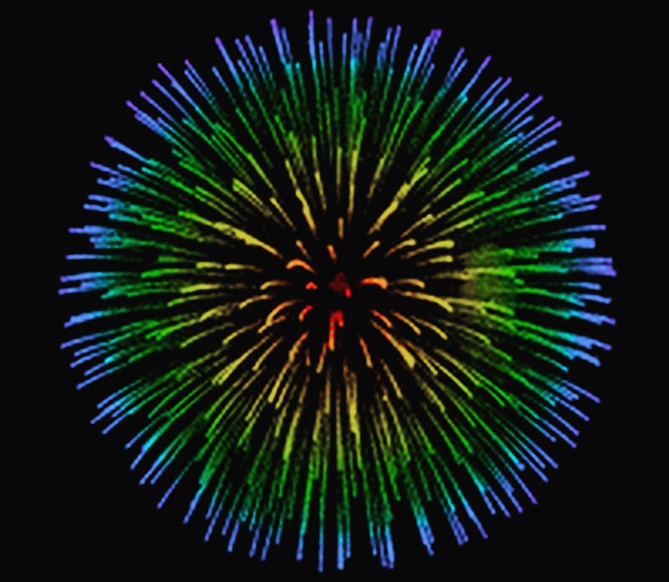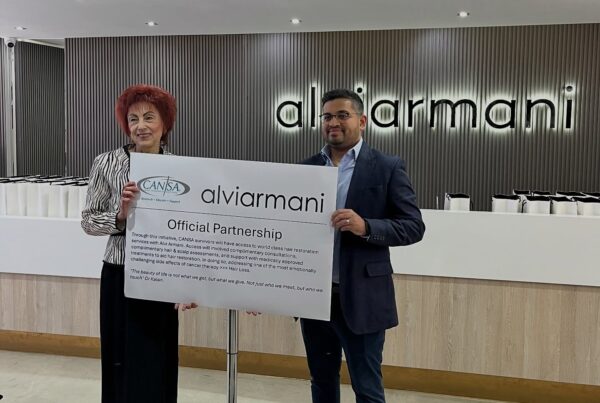Medically managed psychedelics and psychedelics in any shape or form, were once a seriously taboo subject. However, in the last five years there has been a documented shift in policy maker’s attitude and public opinion globally. Thanks to the efforts of dedicated groups of pioneers in the field of plant medicine science, researchers and medical professionals, supported by respected institutions in the US, like Johns Hopkins University. While Africa, and specifically South Africa, lags other countries like the US, Holland, Israel and Australia in offering accessible, medically managed psychedelic programs, there are some pioneering medical professionals charting the way towards responsible use of psychedelics. Here are some of their uplifting insights.
Medically managed and more accepted in the mainstream
The world is in the grip of a mental-health crisis. As early as 2005, in an article published in the European Journal of Epidemiology, researchers estimated that 40% of women and 30% of men in the Netherlands and Australia would experience at least one episode of major depression during their lifetime.
The US wasn’t far behind, with expected rates of 33% for women and 20% for men. Then, in March 2022, the World Health Organization announced that COVID-19 triggered a 25% increase in the prevalence of anxiety and depression worldwide.
The costs of these conditions are high, and if we’re going to turn the tide, we need more information, more resources, and new and better tools. One of these tools may be psychedelics. Two of the most promising candidates are psilocybin, the primary psychoactive ingredient in magic mushrooms, and ketamine, a dissociative drug originally used as an anesthetic.
What can psychedelics do?
Despite their reputation over the years, psychedelics have great potential for improving the way the brain functions.
Ibogaine, a substance found in the African iboga plant, has been successful in treating cocaine and heroin addiction, often without withdrawal symptoms. MDMA (technically 3,4-Methylenedioxymethamphetamine, also known as ecstasy or molly) has gained a reputation for healing trauma. Both ketamine and psilocybin are being prescribed for depression.
Psychedelics are also being used to help with anxiety, alcoholism, obsessive-compulsive disorder (OCD), pain, and more.
According to the National Institutes of Health (NIH) in the US, “Clinical studies have shown that ketamine, an anesthetic that blocks certain receptors in the brain, called NMDA receptors, eases depression symptoms within two hours.” And the effects of a single dose can last for two weeks.
Johns Hopkins Medicine’s medically managed programs show promise
Psilocybin has also yielded impressive results. In 2022, researchers at Johns Hopkins Medicine in the US reported that “the substantial antidepressant effects of psilocybin-assisted therapy, given with supportive psychotherapy, may last at least a year for some patients.” In a small study, 75% of patients were still experiencing significant improvements and 58% were in remission a year after receiving two doses of psilocybin accompanied by psychotherapy.
While the possibility of using hallucinogens to rewire the brain is intriguing, it also raises questions. Are they safe? Who should have access to them, and under what conditions? We spoke to some experts to better understand what they can do for us and the challenges that lie ahead.
A doctor’s psychedelic experience
Before taking her final exams at the Royal College of Psychiatry in the UK, integrative psychiatrist Dr Siobhan Dawson spent six months exploring South America with her husband. Somewhere along the way, they were invited to join a group in Peru using ayahuasca, a psychoactive brew used by shamans in spiritual ceremonies. They lived with the shamans and did a total of three ayahuasca journeys.
That experience changed her life.
Life Changing
Before her trip to the Andes, Dawson suffered from PTSD. She was taking antidepressants and sleeping pills every day, despite her continued efforts to get off them. The results of those three journeys amazed her. She healed from the trauma.
She gained a new perspective of the world and her own identity. She experienced emotional breakthroughs and sustained mood enhancement. She went off the antidepressants and sleeping pills cold turkey, without a single withdrawal symptom.
The importance of integration

Dr Shiv Dawson
But Dawson is quick to point out that psychedelics are no miracle cure. She speaks of the need to commit to self-development and daily mindfulness practices, to “integrate the wisdom of the insights from the journey, to make it relevant to your existence, activating changes”.
Otherwise, she says, it becomes nothing more than the pursuit of peak experiences. “These experiences can be lovely, even opening gateways to other dimensional realities,” she says. “But without integration, a person’s ability to achieve sustainable healing that practically enhances their life is limited.”
Dawson wanted to continue to explore the benefits of this novel modality in Peru, but the shaman advised her to return to London, to work towards changing the paradigm of psychiatry from within. She has thus combined the traditional approach of psychiatry with her passion for making room for the soul and expanding consciousness.
Dismantling destructive beliefs
While the benefits of psilocybin are exciting, ketamine and ibogaine are currently the only psychedelics that can be used legally in therapy in South Africa. We spoke to specialist psychiatrist Kevin Stoloff, co-founder of Lighthouse Clinic in Cape Town, and the founders of Equanimity Wellness in Sandton, clinical psychologists Brad Kallenbach and Anthony Townsend. Both clinics offer ketamine sessions as part of their treatment plan.
Stoloff’s interest in psychedelics began a few years ago, with international academic papers and news stories. Then, in 2017, he attended a conference on psychedelics in psychiatry, where he was convinced that the setting (the therapeutic environment) “is fundamental to optimizing the healing potential of patients being treated with psychedelics”. Just two years later, he and clinical psychologist Jamie Elkon started their own clinic in the Cape.
Professionals embracing the natural power of psychedelics
Kallenbach’s interest began recreationally, on the beaches of Thailand. This eventually led him to see ketamine working in therapy, where it reduced suffering in a way he hadn’t seen before. Townsend learned of research using psilocybin for depression while he was studying at Oxford. When he was able to explore it safely and legally, the experience was profound. It made him realize how impotent many of the tools of therapy were by comparison.
His biggest frustration was with what he termed “the revolving door phenomenon”. Patients suffering from deep depression and complex trauma who completed therapy would come back six months later with the same problems. They used the tools they were given for a time, but then it all faded.
These patients were stuck in rigid, destructive beliefs that made doing the right thing feel wrong – a state known to therapists as cognitive dissonance. Trying to change those beliefs and the behaviors that went with them was, in Townsend’s words, like chipping away at a block of clay. He added that psychedelics “heat up that clay.” “They limit cognitive dissonance by changing core beliefs, so you can feel good doing what you know is right.”
Ketamine vs psilocybin in therapy
Ketamine and psilocybin have a lot in common. Both increase connections in the brain, which may be how they produce altered states of consciousness and (for some) mystical insights. Both seem to involve the interaction of the neurotransmitter glutamate with specific brain receptors, although the details may differ. But there are important differences.
Kallenbach explains that, while psilocybin can intensify your awareness of your body, ketamine was developed as an anesthetic. It’s dissociative, often providing a sense of floating away. This can really help people with chronic pain.
If you would like to read and then watch our Longevity Live interview with Dr. Anthony Townsend and Dr. Bradley Kallenbach, bookmark these clicks here:
Co-Founder of Psychedelic Clinic Discusses The Mental Health Benefits
How Psychedelic-Assisted Therapy Is Changing Mental Health Outcomes
Under Medical Supervision
Psychologists say it’s widely and safely used to treat depression, trauma, generalized anxiety, social anxiety, alcoholism, and relieving thoughts of suicide (suicidal ideation). 86% of their patients no longer present as suicidal after one to three ketamine sessions and the accompanying therapy.
They’ve also found the benefits to include better relationships, improved self-awareness and emotional intelligence, as well as a deeper sense of gratitude.
Townsend and Kallenbach indicate that the main difference between ketamine and psilocybin in therapy is time. Ketamine leaves the system fairly quickly, so more sessions are needed, but they’re shorter. After their initial therapy, most clients have three to six journeys lasting 40 to 60 minutes. The therapy sessions afterwards are spent integrating the insights and experiences, and fine-tuning the focus for the next session.
They say it’s a bit like watching your mind in weekly installments. With psilocybin, on the other hand, you’re binge-watching. Clients take a single heroic dose, embarking on a journey that lasts between four and six hours. This means more therapy beforehand, to prepare, and more afterwards, for integration.
Both Kallenbach and Townsend are confident that more psychoactive substances will be approved for therapeutic use, reducing suffering in a way that simply isn’t possible without them. And while they’re excited about the possibilities, they and our other experts did share some concerns.
Are psychedelics safe?
The medical experts we interviewed agree that psychedelics are extremely powerful and must be treated with respect. There are significant risks to using them on your own. Because they’re unregulated, there’s no guarantee that the substance you’re ingesting – and sending to your brain – is pure and safe. And without a medical evaluation, you won’t know whether you’re risking serious side-effects. Even safe psychedelics aren’t safe for everyone.
In South Africa, the experts we interviewed use ketamine in their sessions. Ibogaine has cardiac side-effects, and there are reported cases of people using it without medical supervision who’ve died of heart attacks. Stoloff asserts that low-dose ketamine therapy (under careful supervision) is safe.
But ketamine can provide a short escape very quickly, which is dangerous for anyone predisposed to addiction. Stoloff says he’s particularly worried about this because its illegal use across the country has skyrocketed recently.
From his vantage point in Cape Town, he sees ketamine becoming the number one recreational substance of choice in some circles.
The risk
He also mentions that anyone with a history of psychosis – or a close family member with such a history – should avoid psychedelic substances. Kallenbach and Townsend agree, explaining that psychedelics increase neuroplasticity and global connectivity in the brain. While this is usually a good thing, people who have too much neuroplasticity (which is the case in psychosis) should avoid them.
Both ketamine and psilocybin are regarded as safe when properly administered and medically supervised. While there may be unpleasant effects (including the possibility of extreme fear during a psilocybin journey), toxicity doesn’t appear to be an issue. In fact, Dawson points out that psilocybin is much less toxic than alcohol.
The red flags
Like Dawson, Townsend and Kallenbach suggest that individuals often expect a psychedelic to do the work all by itself. If that were true, as Townsend put it, all rave-goers would be Buddhas. “Medicine can make you well,” he says. “Therapy keeps you well.”
But that’s not their only concern. They’re also worried about those who act as guides on these journeys. “We need clinicians who are incredibly well trained and have great self-awareness, because people are extremely vulnerable in the midst of a journey,” says Kallenbach. He wants to see rigorous training and protocols, as the skillset required to do this work properly is vast.
Dawson adds: “The original custodians of these sacred plants would apprentice for many years to integrate the gifts of their realizations. The error of the West is that we sometimes feel we can achieve similar wisdom by selectively using the more convenient parts of the practice. We fail to recognize that healing is a journey of complexity and discovery.”
Fearing we’ll lose touch with its spiritual potential, she wants to preserve the ritualistic and reverent use of psilocybin, to promote an intimate relationship with it as a teacher plant.
Making South African history
Ethnomycologist Cullen Clark is co-founder of Aether Apothecary, a South African company focused on sourcing medicinal herbs and mushrooms locally. During his travels throughout South Africa, he’s learned of a number of local psychoactive mushrooms. In the Transkei, for example, inhabitants consume a mushroom with spotted gills they call inkowane mnyama. They also give it to horses before races, as they believe it’ll make them run faster. The wrong dose, however, can turn it into a poison.
Koae ea Lekhoaba
In 2021, while hiking in the mountains around his village, Clark discovered a mushroom that grows only in southern Africa. He and a team at Stellenbosch University, led by Breyten van der Merwe, named it psilocybe maluti. The locals call it koae ea lekhoaba.
Clark is excited about the possible benefits of this mushroom, not only for healing and consciousness expansion, but for the South African economy. He’s concerned that international corporations will take over the industry, leaving small businesses (and individuals who want to expand their consciousness) out of the picture. His long-term vision for the fungus is to have a South African species that is grown by South Africans for South Africans.
Thousands of years of practice

Cullen Clark, ethnomycologist and co-founder of Aether Apothecary
Speaking to sangomas and others around the country, Clark discovered that psychedelic mushrooms had been used for hundreds of years or longer. The most common method involved a beverage the healer would drink, after which they’d sit in front of a mirror and enter an altered state to understand what the patient needed.
The research is the first of its kind in South Africa
When Clark tried to determine how old these traditions were, he was told by every university that there were no records of mushrooms being used in this way in South Africa, either in writing or paintings. He requested access to the rock art archives at the University of the Witwatersrand. There he found hundreds of depictions of fungi used in southern Africa.
Among them were images – some of them thousands of years old – of people holding mushrooms, eating them, and experiencing ecstatic states. Clark’s research is the first of its kind in the country, and it confirmed what he’d suspected all along: for millennia, the people of Africa have been using mushrooms to alter consciousness, expand their thinking and understand the world a little better – as more and more people are doing today.
You can read and then watch our exclusive Longevity Live interview with Cullen Clark here
Cullen Clark Shares His Journey With Indigenous Psychedelic Mushrooms
Accessibility
Although ketamine has a long and safe history as an anesthetic, its use in the treatment of depression and other mental-health conditions isn’t covered by medical aid in South Africa. Stoloff explains that, despite studies demonstrating its value in improving mental health, this remains an off-label use. He finds the lack of coverage frustrating.
And while Australia and New Zealand have allowed psychiatrists to prescribe MDMA and psilocybin since mid-2023, he believes ketamine is a better choice for South Africa. MDMA and psilocybin-assisted sessions are six to eight hours long; they require two therapists and many hours of psychotherapy. Ketamine is far more affordable. Given the prevalence of acute and long-lasting trauma syndromes in South Africa, he sees ketamine as “the obvious choice in our unequal country”.
A better world
Our experts tell us that psychedelics can help us loosen our connections to trauma, so we may finally begin to heal. They can also allow us to feel more connected to one another, to nature, and to a higher power. A patient at Equanimity Wellness summed up these possibilities: “Ketamine brought me back to life, and psilocybin showed me how to live.”
End note
This article first appeared in Longevity’s print annual Living Beyond 100 edition 2024-25. If you would like to buy a copy, click here.



![women [longevity live]](https://longevitylive.com/wp-content/uploads/2020/01/photo-of-women-walking-down-the-street-1116984-100x100.jpg)










